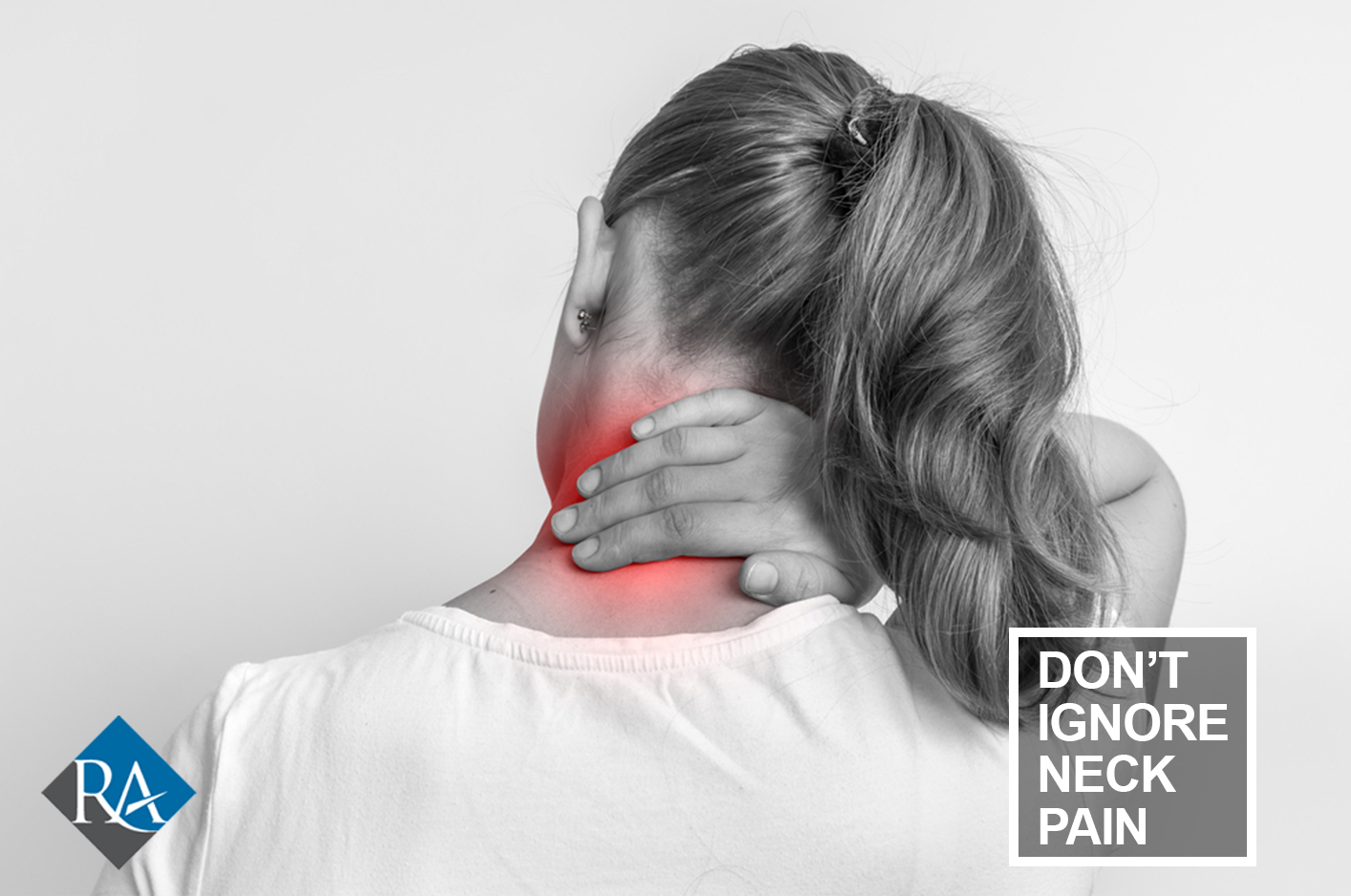
31 May Even slight neck pain can lead to major medical issues
Often people may have little or no pain immediately following a car accident. But over time, the symptoms of injury to the neck can be made worse when the accident victim is not properly diagnosed and quickly treated. In a car crash, the neck and head will often experience a forceful and extremely rapid movement known as whiplash. This is especially common in rear-end and side impact car crashes. But neck pain after an accident may be a more serious condition than whiplash – which can begin as a mild condition and worsen over the following weeks with symptoms of neck stiffness, pain, and headaches. It is a mistake to assume your neck injuries are simply whiplash and will heal with rest and pain medications.
Don’t Ignore Neck Pain After a Car Accident
If you are involved in a car accident and experience neck pain, sometimes medical practitioners will dismiss your symptoms as “not serious.” But, whiplash associated disorders can cause a lifetime of chronic pain and negatively affect your ability to work or enjoy your personal life. Here are some common myths and truths concerning neck pain after a car accident:
- Deeper injuries to a disc or joint may require surgery and rehabilitative therapy. Injury to higher joints such as the atlanto-occipital can cause migraine headaches to occur.
- Whiplash may be a temporary neck sprain or it can be Facet Joint Syndrome – a very common car accident injury to the cervical spine (your neck) characterized by the need to turn your entire body to look left or right.
- The forceful impact of an auto accident can cause a torn disc injury that is quite painful even when performing normal activities. If nerve endings are being stressed by a herniated disc, expect pain to occur in the arms and neck.
According to NCBI, the forces of whiplash can cause a deteriorated quality of life for up to 5 years after the accident. A misdiagnosis can leave car accident victims with a lifetime of pain and reduced range of motion when neck injuries are assumed to be whiplash.
Cause of Neck Injuries are Difficult to Diagnose
Similar to the spine, the joints, bones, and ligaments of the neck present a phenomenon when exposed to the rapid and forceful acceleration-deceleration mechanisms that exist during a car accident. The exact cause of neck pain can be difficult to diagnose. Also, the muscle strain of the neck may also be exacerbated by acute upper back pain because the spinal cord and spinal nerves run along the entire back and neck. For this reason, neck injuries after a car accident are difficult to diagnose.
Neck injuries that are initially caused by trauma can begin to experience degenerative changes. A medical diagnosis may determine the extent of injury to the following anatomical parts of the neck:
Soft Tissue Injuries to your muscles, tendons, ligaments, and/or fascia which all work together to move the entire head when injured produce muscle spasms, sprains, and the muscle pain associated with car accident neck injuries.
Nerve and Spinal Cord Injury – Whether mild or serious, can cause chronic pain, lack of mobility, neck/arm weakness or numbness, and burning or tingling sensations that go down one arm
Broken Neck – When the high-energy trauma of a car accident fractures the bones in the neck which make up the cervical vertebrae.
Serious Neck Injury Symptoms
It is critical to call an attorney and immediately seek medical attention after a car accident – especially if you are experiencing the following symptoms of a neck injury:
- Stinging or numbness down one arm
- Neck pain along with back pain
- Dizziness or sleep disturbances
- Headaches or mood changes
- Neck muscle spasms
- Reduced flexibility of the neck
Call RA and Associates immediately following a car accident and seek medical attention if you are experiencing symptoms of whiplash or neck injury. As a leading personal injury law firm in Southern California, we take your car accident injuries serious and will fight to make sure you receive full compensation for your injuries, loss of income, and future wages.

Sorry, the comment form is closed at this time.